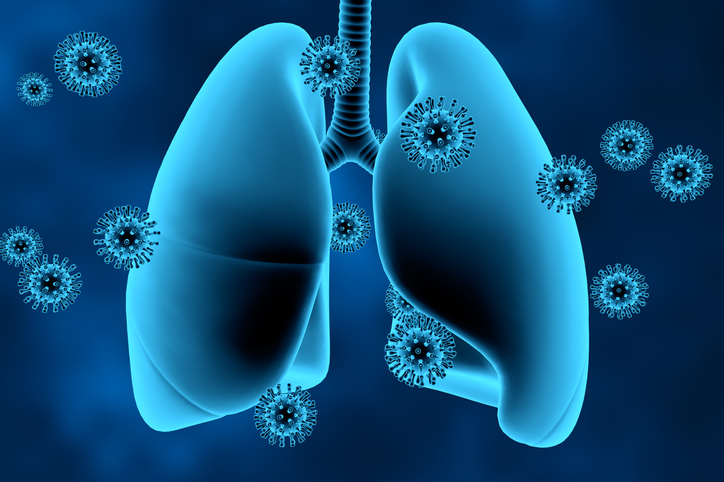Decreased lung function is typically noticed as both infectious and non-infectious conditions. Viral infections affecting lung function (including the current pandemic strain SARS-CoV-2) can cause acute and long-term chronic damage.
First, in the new type of corona pneumonia, it is related to the fact that pneumonia begins relatively early in the lungs and progresses with a few symptoms, such as coughing and sputum. Also, inflammation starts relatively early in the lungs in new corona pneumonia, where oxygen uptake decreases. It is pointed out that the new coronavirus may weaken the neural circuit’s function, making the brain less aware that it is stuffy to feel breathless. The body responds to hypoxia and struggles to take a breath, making breathing hard. However, the brain does not feel it as pain. In addition, SARS-CoV-2 infection suppresses innate immunity and promotes an inflammatory response.
On a positive note, clinical and animal studies have shown that Fucoidan enhances innate immunity and reduces inflammation. In addition, diet fucoidan is shown to reduce lung damage in models of acute viral infection.

Direct inhibition of Fucoidan on SARS-CoV-2 in vitro has been studied and reported but not universal. Thus, in this blog, I would like to share information based on the study “Fucoidan and Lung Function: Value in Viral Infection” by J. Helen Fitton et al. This short review summarizes current research on Fucoidan for viral lung infections and lung injury. An immunomodulator or a tissue-preserving anti-inflammatory agent is a more appropriate role explicitly related to Fucoidan. Respiratory viral infections, including influenza strains, are inhibited in vitro and in vivo by orally administered Fucoidan. Indirectly, oral Fucoidan is also naturally helpful in the elderly. It appears to have the ability to strengthen immunity and increase the response to the vaccine. Furthermore, a moderate daily oral dose of 300 mg fucoidan from Undaria pinnatifida enhanced the vaccine response.

An essential feature of SARS-CoV-2 is that the initial innate immune response is low, and the viral infection progresses until the cytokine response is widespread. High pro-inflammatory clues are essential in COVID 19 and can progress to cytokine storms.
Even without extreme cytokine storms, inflammatory damage caused by an immune response to pathogens can cause permanent fibrotic changes in the lungs.
Oral Fucoidan may be adequately placed as a dietary addition to alleviate this inflammatory injury in the early stages. Richards et al. recently observed no viral reduction by fucoidan administration. Even a significant decrease in total lung lesions was kept in a mouse model of severe influenza using oral administration.
Additional data on orally administered Fucoidan show the potential dampening effect on viral lung injury described by Richards and Hayashi. Polysaccharides from Fucoidan and other seaweeds are proven to inhibit the invasion of influenza virus into cells directly.
A recent pandemic with the coronavirus mutant SARS-CoV-2 is evaluated in vitro with a variety of fucan, Fucoidan, and heparin compounds. In addition, heparin has also been shown to directly inhibit SARS-CoV-2 in vitro, which may increase its effectiveness as a therapeutic agent.
Fucoidan preparations can be drugs that limit damage after respiratory virus infection by restoring innate immune function and suppressing inflammation. However, additional research is needed to examine this hypothesis.
